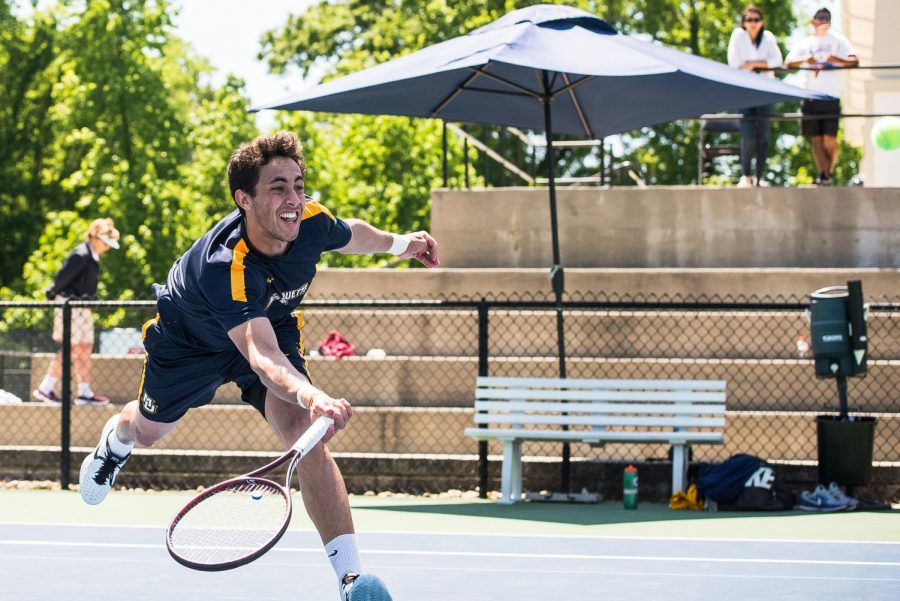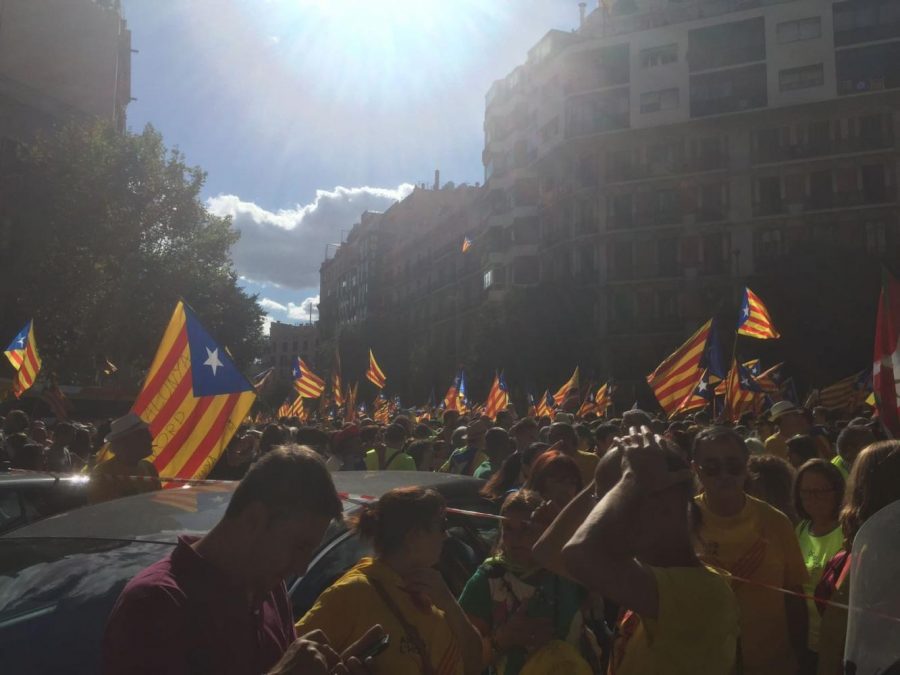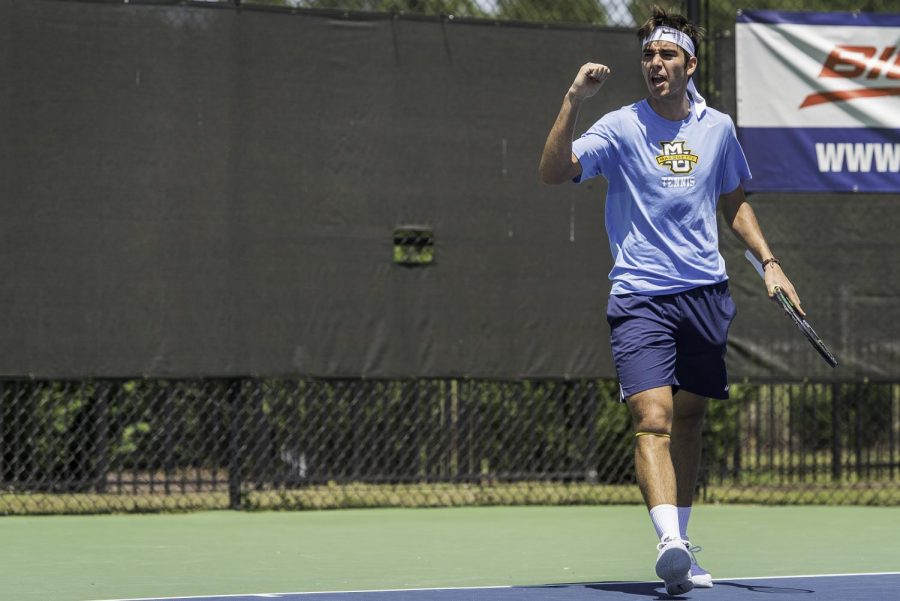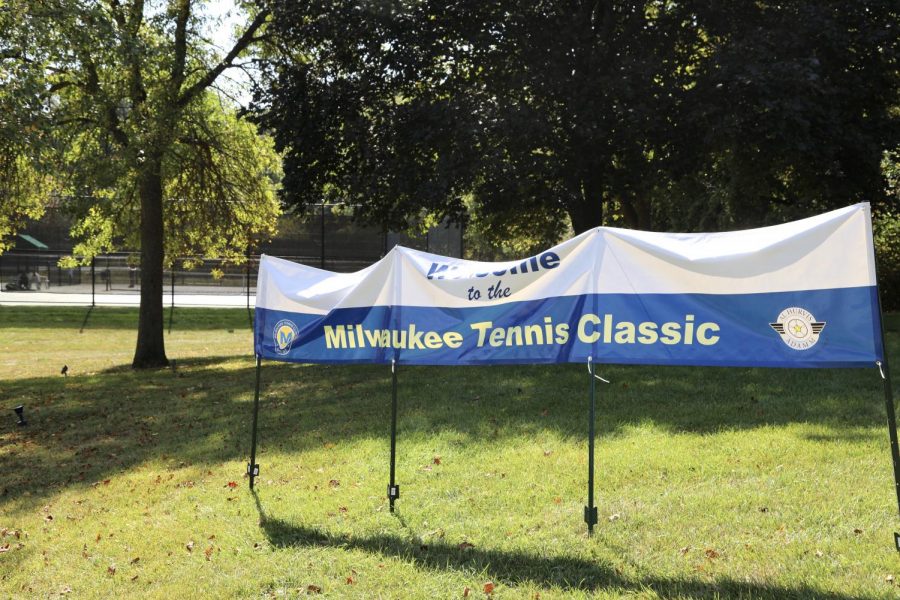Ask junior men’s tennis player Alvaro Verdu, who lives in the small, Spanish coastal village of Elda, what he thinks about the recent Catalan independence referendum, and he responds without any hesitation.
“I’m totally against (Catalonian independence), because one of the beauties of Spain is that we’re such a diverse country,” Verdu said. “Every region has its own traditions, its own gastronomy, its own … culture. (The seperatists) are trying to end it in Catalonia and build up new walls and new borders.”
Freshman men’s tennis player Luis Heredia Gomez, who is from the Spanish capital, Madrid, concurs with his teammate, but not everyone agrees. Some residents of Catalonia, a region attempting to declare independence, say the region has a right to hold a referendum on separating from the country and have the results legally recognized. Supporters of the Spanish government, including Heredia Gomez, assert that Catalonia does not have the constitutional authority to hold such a vote.
“If you want to do something correctly, you need to go through certain processes,” Heredia Gomez said. “But I think (the referendum) is not a way, you don’t have a majority of people that want that,”
Starting with an independence referendum in 2014, Catalonia has repeatedly tried to break away from Spain. People from Catalonia speak Catalan, as opposed to the Spanish-speaking majority. The province makes up approximately 20 percent of Spain’s gross domestic product and is one of the country’s wealthier regions. In addition, the region boasts Barcelona, a city renowned for its architecture and culture that is unique to the rest of the country.
Supporters of Catalan independence will point to the disparity in wealth between the region and others in Spain as a reason for independence, while opponents make the argument that this is only because of Spanish investment in the region. Verdu holds the latter opinion.
“I think they used that now as like, ‘Oh, we are such a powerful region, so we’re going to break out of Spain so we have our own rich country,’” Verdu said. “But they are rich because they’re part of Spain,”
Both players asserted their opinions reflect the majority of Spanish thinking on the issue.
“I think it’s a common thought about what’s happening in Catalonia. It’s not a majority of the population in Catalonia,” Heredia Gomez said.
The most recent survey from the Catalan government conducted over the summer showed 35 percent of Catalans supported independence.
One of the most controversial aspects of Catalan independence is a prospective customs system. Every time a Spanish citizen wants to go visit a family member, he or she would have to clear customs.
“I don’t think that’s fair for us,” Verdu said. “My family is from Valencia, but I have family in Catalonia. I don’t see myself going through (customs) every time I have to go see my family in Barcelona.”
Although Catalonia is one of the most economically prosperous regions in Spain, it’s also deeply in debt. Catalonia has a public debt of its own and is also responsible for shouldering a share of Spain’s $1.2 trillion debt. Recent estimates for the size of this debt range between $50 billion and just shy of $90 billion. The share of that debt that Catalonia will take on is one of the key controversies surrounding the independence movement.
“They say they wouldn’t pay the debt because they wouldn’t be in Spain anymore,” Verdu said.
Every day, Verdu feels the desire to fight for what he believes in at home. Not being able to is the toughest part about living in the United States.
“I’m not there to live there and experience it,” Verdu said. “I’m trying to support my family in Catalonia or talk to my friends … It’s hard to be so far away and I can just text them. I cannot see them and support them the way I should.”
Gomez and Verdu played countless tournaments in Catalonia. After participating in a tournament in Lleida, a city two hours west of Barcelona, both players said they felt alienated for no other reason than their place of birth.
“They treated (us) like a foreign (sic), which is not fair because technically we’re in the same country,” Verdu said.











